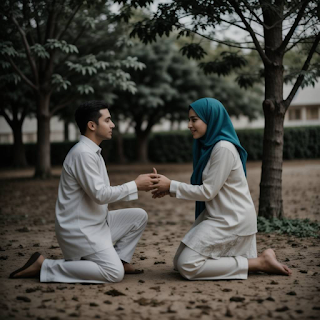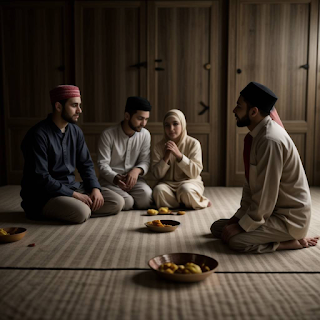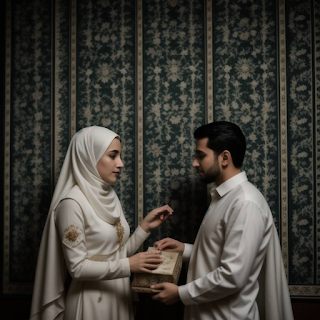20 Muslim Wedding Customs | Muslim Wedding Traditions and Rituals
Weddings are one of the most auspicious events where two souls and families unite. Everywhere in the world, the sphere of weddings is surrounded by diverse customs and rituals. And Muslim weddings are no exception. Islam is one of the widely practiced religions and the marriage ceremony held under it involves many rites.
Being among the most vibrant and captivating communities, the events are colourful and rich by all means. Additionally, the Muslim wedding customs and ceremonies are a mix of familial ties, mix of spirituality, and more. Over time, the traditions have evolved so nicely without losing their significance.
If you are going to get married or planning a wedding for a loved one, then knowing about the customs and rituals is an ideal thing to do. By going through the list of Arabic wedding customs, you would know what to do, what to wear and other unique experiences coming towards that should be embraced.
Customs and Rituals of Muslim Weddings That You Should Know Of
There are many Muslim wedding customs and rituals that one should know about. These include the pre-wedding, wedding, and post-wedding rituals that make the entire wedding elaborate and full of fun.
Zabaan
One of the first Muslim pre-wedding traditions that takes place is the Zabaan. This is the first event where the initial meeting takes place. During this meeting, the groom's family asks for the hand of the bride.
 |
Asking her to be his soulmate for a lifetime| The girl says "Yes" |
Once the bride's family approves of it, this indicates a union of two souls and the families. During this event of acceptance, gifts, sweets and other items including blessings are exchanged.
 |
Offering a Marriage Proposal- asking |
Salatul Ishtekhara
Once the families accept the marriage proposal and finalize it from their side, the heads of the community are contacted.
They are given the news and are asked to perform the Salatul Ishtekhara which is a type of muslim prayer. The prayer is conducted by the heads to seek the consent of Allah and offer blessings to the new couple.
Read further>>>
How to offer a Marriage proposal for a Muslim Marriage?
Bachelorette Party or Kuwara Bhaat
After the Salatul Ishtekhara is performed, the bachelorette party or the Kuwara Bhaat ceremony takes place. Even though this is not officially a marriage custom in Muslim, the bachelorette party is still conducted following the trend.
This event takes place for the soon-to-be “bride” or “groom“ to engage in some fun activities where people are invited and gifts are exchanged. Also, precious memories from the past are shared.
Read further>>>
What to write to a Bride-to-be?
Imam Zamin
The next Islamic wedding custom that comes right after Salatul Ishtekhara is the Imam Zamin. In this event, the groom's mother comes with all the gifts and Imam Zamin to the bride's house.
The Imam Zamin has a gold or silver coin wrapped in a cloth that is tied to the wrist of the bride. By conducting this ceremony, the bride's family becomes assured of the proposal and marks the acceptance as well.
Mangni
Mangni is another event that is conducted before the actual marriage event. The Mangni is also called The Engagement Ceremony which declares the union of the Bride and the Groom in front of all the relatives alongside other guests.
In this event, both sides which include the bride and the groom are expected to exchange gifts and shower the soon-to-be newlywed with blessings. Also, the most precious item that is exchanged is the finger ring.
Manjha or Haldi
This is one of the most important events that is conducted before the actual wedding. It marks the beginning of the wedding ceremony. In this event, it is a ritual followed where the groom's family sends Turmeric paste or haldi mixed with sandalwood and rosewater to the bride.
And then the bride applied this paste all over her loved ones. This is mostly done to get the bridal glow on the face. Families and friends mostly wear yellow clothes on this occasion.
Mehendi
Mehendi is the next event that takes place followed by the Manjha. As henna is considered to be sunnah as per the Islamic religion, applying it is considered to be auspicious.
In Islamic marriage traditions, henna artists are called to create the most beautiful designs on the hands of the bride that adorn her look even more.
 |
Best and Easy Decoration Ideas for Mehendi Ceremony |
Most of the time, the groom's initials are written and then the groom is asked to search for it as a game. At this event, the bride and everyone else mostly wear green clothes.
If you are looking for some awesome captions for Mehendi, then check out this collection of 101 Quotes for the Mehendi Event before the Wedding.
Sanchak
Sanchak is another event that happens right before the nikah. At this event, the bride is visited by the groom's family members excluding the groom. The bride's family visits the bride with all the items that may be required on the day of the nikah.
Apart from this, they bring other gifts as well like fruits, sweets and more. This event signifies the love and support that the bride gets from the new family that soon she is going to be a part of.
Zaafe
A marriage custom of Muslims that takes place before the Baaraat is Zaafe. This is the night where the bride and the groom's family get involved in fun activities alongside a lot of music.
At this event, smiling faces can be seen everywhere and the joy symbolizes the union of the two families. Zaafe is the best way to spice up the entire event and make everything even more memorable.
Baraat
This is the most awaited and fun part of a Muslim wedding that takes place. On this day, the groom arrives at the bride's house in a well-decorated car or a horse. The car is adorned with flowers and firecrackers are lit. In most weddings, the musicians even play instrumental music.
When the groom and his family arrive, he is escorted by the bride's family. This is one of the splendid sights that everyone waits for at a wedding. You may hear the guests cheering loudly and the bride becomes restless as the moment gets closer to the nikah ceremony.
Welcome
As the groom comes to the bride's house or the venue, he is welcomed by the family members. Then the groom is greeted by the brother-in-law who is lifted in the arms and taken to the stage or the nikah venue.
After this, the women in the family proceed to offer a sweet drink or sharbat to the groom alongside some sweets like rasgulla, Sandesh and more. Then the groom and his friends are given space to relax as they enjoy and entertain themselves throughout.
Nikah
This is the most important Islamic wedding tradition without which the whole event would be incomplete. It is one of the most intimate rituals where only the immediate family members and only the married ones are allowed to be present.
This ritual comes with a roller coaster of emotions where the priest or the Maulvi proceeds with saying the Quranic verses followed by the vows to be made.
In this ritual, the groom and the bride have to say “Qubool hai” or “ I do “ three times. After this, dua is made and the nikah ceremony is completed.
Mehr
Then arrives the dowry ritual in the Muslim wedding called Mehr. In this ritual, the groom gives dowry to the bride during the nikah. This Mehr is either set by the priest or maulvi, the family of the groom, the groom or the bride herself. And the groom can give dowry as he wants. This means it can be in the form of money, jewellery, or any other precious item.
The major purpose of this marriage customs in Muslim is to ensure that the bride would receive financial security from her husband in the future. Also, it shows the love and compassion of the groom towards her bride. Being the most overwhelming ritual, sweets are distributed among the guests which announces that the Nikah is done.
Vows and Blessings
Just like any other wedding that occurs around the world, the Muslim wedding is also full of vows and blessings. In this marriage custom of Muslims, the bride and the groom may want to incorporate their faith in the middle of the event.
They may either choose to perform prayer or salah together to show their gratefulness towards Allah. This occurs right after the nikah has been performed.
Dabke
Dabke is one of the renowned Arabic wedding customs that happens right after the nikah. This is a ritual where the professional dancers open the invitation for the guests to become as joyous as possible instead of sitting down in a corner.
As the floor opens, guests gather on the dance floor and do their best moves. Most of the time, they even gather together or side by side to dance and make the moment as happy as possible.
Arsi Musharraf
Once the nikah and Mehr are done, this Islamic wedding tradition is performed. Arsi Mushraf is a ritual where the groom and bride will see each other for the first time after the nikah has been performed. However, the groom cannot see the bride straight away.
He has to see her reflection in a mirror. As this ritual takes place, the Holy Quran is placed between them. And when the groom is asked, “ What is he looking at“? He replies by saying that he is looking at the “moon” which refers to the bride.
Rukshat
This is the hardest ritual of all that takes place in the Muslim wedding. Rukshati is bidding goodbye to the family members by the bride.
Everyone has tears in their eyes in this ritual and the memories of the childhood days flash in front of the eyes. The bride cries a lot and the groom consoles her throughout. And then she is assisted by her in-laws to be taken to her new house.
Barmet Al-Aroos
Once the event of nikah is completed, the Arabic wedding customs follow the event of Barmet Al Aroos. In this ritual, the bride and groom are seen getting into a well-decorated vehicle that is mostly adorned with flavours or a plating displaying “just married“. Before they sit inside the vehicle, they will greet everyone as mentioned in the Rukshati ritual.
The bride and the groom are then followed by the vehicles of their family members mostly friends and siblings until they reach the hotel where they would be spending their first night. And as the destination arrives, the couple goes inside the hotel while everyone returns.
Walima
Dawat-e-Dalimah or the Walima is the second last event that takes place before the wedding ceremony ends. This is more like a grand party where the bride does not need to hide her face with a veil. The bride is allowed to reveal her face.
She can dress up gorgeously and stay on the stage with the groom to greet every family member. People visit the bride and the groom and shower them with gifts alongside blessings.
Mostly, the Walima is conducted to introduce the newlywed and offer treats to the extended family members. The Walima grandly takes place and people enjoy themselves eating, dancing, meeting each other and more. It would not be wrong to say that Walima is the declaration of the marriage in the presence of everyone.
Chauthi
Last but not least, the final Muslim wedding custom is the Chauthi. This takes place after four days of the Walima. At this event, the newlywed goes to the bride's family. And the bride's family showers them with lots of gifts, love, and blessings.
Also, the groom and the bride are served with a hearty meal. The bride and the groom can choose to stay at the bride's house for a few days. And once they choose to leave, they are again showered with gifts. This marks the end of the Muslim wedding.







.webp)

